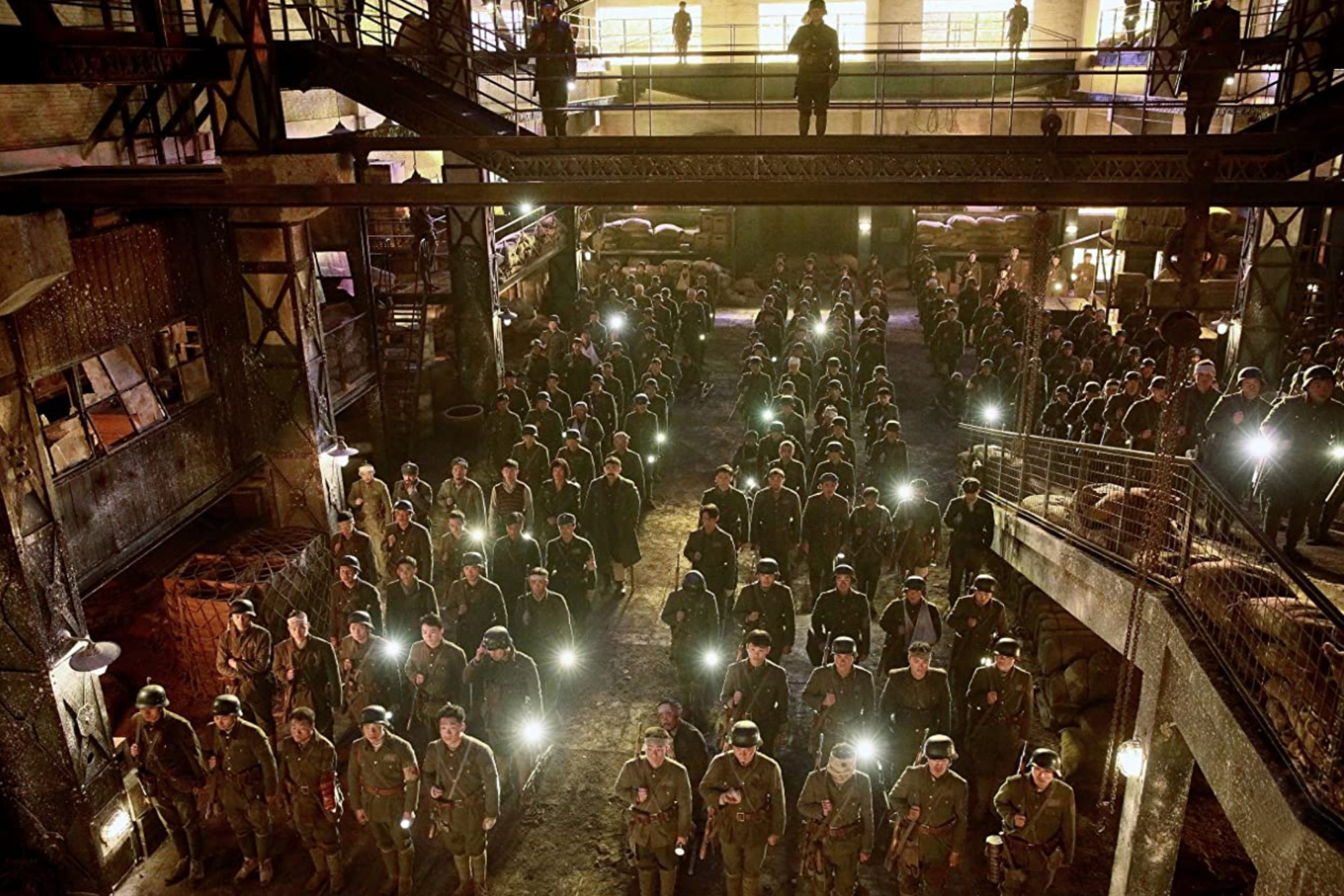
- Film
New Asian Cinema: The Eight Hundred (Babai), (China)
Amidst the COVID-19 pandemic, China has surpassed the United States to become the world’s biggest film box office for the first time. Producing over $460 million in ticket sales, the epic war movie The Eight Hundred is the year’s biggest-grossing movie in the country. That’s the first time for a non-Hollywood film to achieve the highest box office performance of the year.
Directed by sixth-generation director Guan Hu, The Eight Hundred is the first Chinese film shot entirely in the IMAX format. It was originally scheduled to be the opening film at the 2019 Shanghai International Film Festival but was ordered removed from the program for political reasons. The Chinese Red Culture Research Association found the portrayal of the Chinese Nationalist Army in the film was untruthful, which put the film’s theatrical release in limbo until the director agreed to edit out 13 minutes of the film.
The film is based on a true story from the Sino-Japanese war. In 1937, 400 Chinese soldiers from the 88th Division of the Chinese Nationalist Army defended the Si Hang Warehouse against the Japanese army for four days and four nights. To deceive the enemy and boost citizens’ morale, the commander of the division announces that there are 800 soldiers guarding the warehouse. Against the backdrop of Shanghai’s glamourous nightclubs and neon lights, the film details how the soldiers defeat six Japanese forces while hundreds of Western journalists and Chinese civilians bear witness to an epic patriotic battle. Chinese have called The Eight Hundred “China’s Dunkirk”.
Though the film’s main cast consists of A-list Chinese actors such as Li Chen, Wang Qianyuan, and Zheng Kai, there is no lead role in the film because Guan Hu intended to show the 400 soldiers as one representation of the nation instead of individuals. Over 1,000 actors were chosen to audition to play the soldiers and 400 were selected to go through 7 months of military training at a warehouse in order to keep them physically and emotionally immersed in the atmosphere of the real battleground.
Cinematographer Cao Yu, a long-time collaborator with director Lu Chuan (The Eight Hundred also embraced international collaborators specialized in visual effects, sound design and music composition. The film’s visual effects were supervised by Tim Crosbie (X-Men: Apocalypse) and the main score is written by Andrew Kawczynski (Dunkirk).
Guan Hu, once the youngest director in the Beijing Film Studio, is an important figure of the sixth generation. His award-winning films, such as Design of Death, often offer blunt commentaries on China’s social transformations and cultural changes. Following his recent success with normal’>Jin Gang Chuan has been released in theaters on October 25 to mark the 70th anniversary of the Chinese army’s participation in the Korean War.

